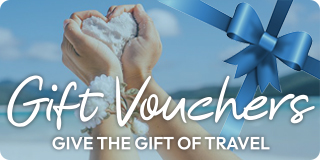Stinger Season In Airlie Beach
Stinger Season comes around every year in Airlie Beach, in the Whitsundays, during the warmer months. From October to May, we find ourselves sharing the water with various types of venomous jellyfish. Irukandji, box jellyfish and bluebottles thrive here in Airlie's warm, tropical waters.
These little stingers like to hang out closer to the coast as well as in mangroves or estuaries (however, can still be found further out to sea). They are pushed into our waters due to strong winds and currents from the north. To avoid letting a nasty sting upset your dream Whitsundays getaway, our team of Airlie locals have put together a handy guide on everything you need to know about Stinger Season.

What happens during Stinger Season in Airlie Beach?
Despite the fearful stigma surrounding these jellyfish, they do play a vital role in the marine ecosystem here. They provide protection for fish from predators, are food for animals such as sea turtles, and also help reduce fish mortality.
Although it is highly unlikely you will be stung, it is important that you are aware of who you could be swimming, diving or snorkelling with.

We recommend you familiarise yourself with the following species of jellyfish:
- Irukandji: Tiny, venomous jellyfish, roughly the size of a cubic centimetre which make them tricky to spot. These guys can cause Irukandji Syndrome which is potentially life-threatening. The symptoms can include body and muscle aches, nausea/vomiting, chest pain, difficulty breathing, anxiety, headaches, increased heart rate or high blood pressure.
- Box Jellyfish: Bigger than the Irukandji, the box jellyfish have longer tentacles and a ‘box-like’ body. Unfortunately for us, their sting can be life-threatening as their venom attacks the heart, skin cells and nervous system. They can also cause respiratory distress and cardiac arrest within minutes.
- Bluebottles: The easiest to spot - as described in their name - they are bright blue. Although they aren’t life-threatening, they do cause a great deal of pain and swelling if stung.

How to stay safe against stingers in Airlie Beach
- In Airlie Beach: Swim in the lagoon, pools, and natural swimming holes rather than at the beach
- In the ocean: Wear a stinger suit and check weather conditions
- In an emergency: Have vinegar or hot water on-hand, and know who to call
Don’t let the risk of being stung scare you off enjoying your time here in Airlie Beach! If you're spending the day in this beautiful beachside town and are keen to cool off during stinger season, we'd recommend going for a dip in the beloved Airlie Beach Lagoon, rather than in the ocean.
But if you're planning to snorkel, or the ocean is just calling your name, wearing a 'stinger suit' will protect 75% of your exposed skin where stings are most likely to occur.
What is a stinger suit?
A 'stinger suit' is a full-body lycra or neoprene suit, that looks like a wetsuit. They may not as flashy as your board shorts or bikini, but their benefits include both sting prevention and great sun protection. You can buy/hire the suits throughout travel or dive shops in Airlie’s main street, but if you're going out on a boating adventure they are generally provided by the crew!
Staying stinger safe in the ocean
It’s important to be aware of the weather conditions on the day you are jumping into the water. If you are on a boat, be sure to ask the crew about the current wind and sea conditions. It’s also not a silly idea to carry a bottle of vinegar with you whilst out on your ocean adventure! Vinegar helps to soothe the sting from the box and Irukandji jellyfish. While strolling down the Airlie Beach foreshore, you may notice stinger warning signs along the way. These are usually accompanied by a bottle of vinegar in case of emergencies. However, for bluebottles we recommend you use hot water on the sting instead.

Here are some tips from the Queensland Government if you or someone you are with is stung:
- Call for medical help (ring 000)
- Assess the patient and perform CPR if necessary
- Douse the sting site with vinegar as soon as possible. Vinegar inactivates the stinging cells, preventing them from injecting more venom.
- Reassure the patient and keep calm until medical help arrives.
- Wait at least 45 minutes before re-entering the water as symptoms of Irukandji syndrome can take a while to develop.
- If in doubt, treat it as Irukandji.
For further information, have a read over our in depth article on Stinger Season in the Whitsundays.
With these simple safety guidelines, your tropical getaway can still be enjoyed without a hitch, whether you're spending the day in Airlie Beach or out amongst the Whitsunday Islands.














